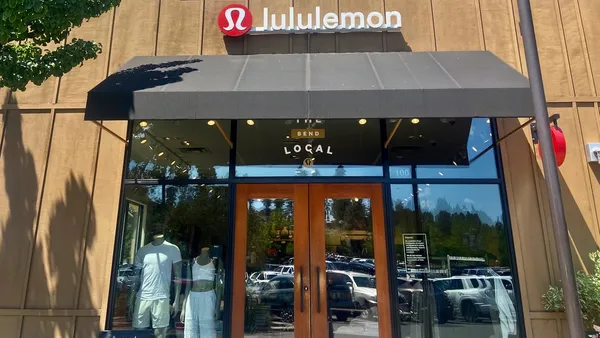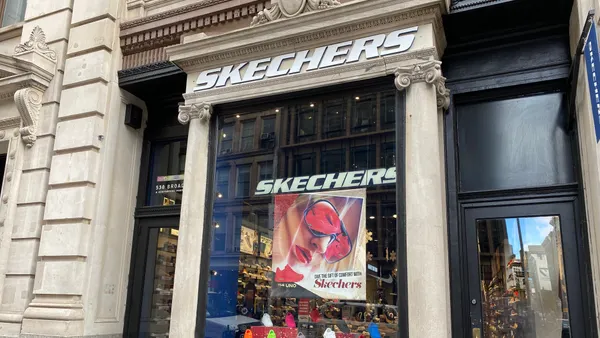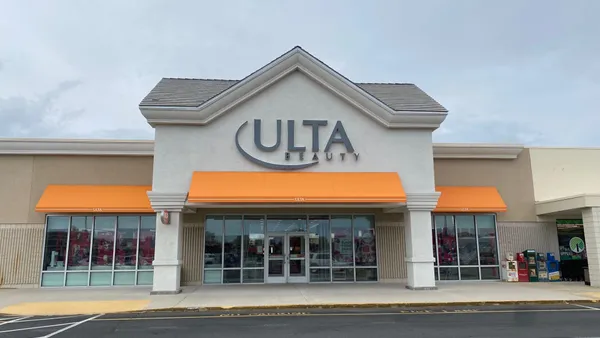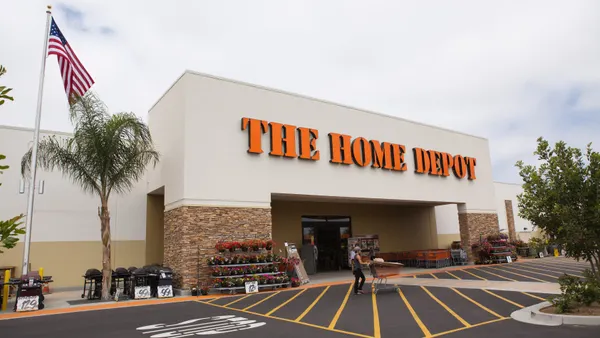Dive Brief:
- Crafting retailer Joann has filed a proposed $100 million initial public offering with the SEC, the proceeds of which it intends to use for "general corporate purposes."
- According to Renaissance Capital, the initial filing is a likely "placeholder" for what it estimates could be a $400 million IPO deal.
- The Tuesday filing comes as IPOs hit a two-decade high. Currently owned by Leonard Green & Partners, Joann would still be controlled by the private equity firm after its IPO.
Dive Insight:
These are boom times for IPOs as they reach their highest numbers since the tech boom of the late 1990s. The heady market has provided an opportunity for both startups and private equity-owned legacy retailers to cash in on at least some of their holdings.
Earlier this year, Petco, which for years struggled under the debt load from its leveraged buyout, brought in more than $900 million from an IPO. Petco's private equity sponsors, CVC Capital Partners and the investment arm of the Canadian Pension Plan, got a boost not just from a rollicking market for stocks but also the surge in pet ownership during the COVID-19 pandemic. As with Joann's plans, post-IPO Petco is still majority owned and controlled by the private equity firms that took it over in 2015.
The IPO cash provides an opportunity to pay down some debt and for private equity owners to reap some profit from their investments. Of course, it's not the only means for private equity firms to make money from their investments. In past years, Joann's sponsors pulled $5 million a year out of the company in the form of management fees. The fees continued even as the company's debt made its way onto Fitch's "Loans of Concern" list. Through October of 2020, though, Leonard Green & Partners took only $800,000.
Those management payments, which are set to stop after the IPO, are dwarfed by the company's interest expenses, which in past years have topped $100 million. As of October, the company's long-term debt stood at $921.6 million, down from a peak of $1.3 billion in 2019, after Joann repurchased $347.1 million of its term loan debt at prices below its original face value.
Joann's sector has been helped by the pandemic, with a surge in DIY activity. The company's own research in the creative products industry shows a 4% increase over the past five years. Bloomberg and Morning Consult data cited by Joann in its IPO papers shows 30% of Americans were sewing or repairing clothes during the pandemic. Joann estimates it has about a third of the sewing market, making it a leader in the category.
Along with a strong category, Joann, with 857 stores, had boosted its omnichannel capabilities in the years leading up to the pandemic. After double-digit growth in past years, omnichannel sales last year through October ballooned by 369%. In its S-1 form, Joann touted its broad assortment (with 95,000 SKUs in stores and even more online), shopping environment with in-store services, digital platform, management team and knowledgeable staff in stores.
As the pandemic drove crafters its way, Joann's top-line and comparable sales both grew by more than 24% last year through October. That is a steep improvement over the previous year, when negative comp sales contributed to a $486.8 million goodwill impairment against the company and its brand. Joann competitor Michaels also grew sales during the period as crafters sought it out during the pandemic.













